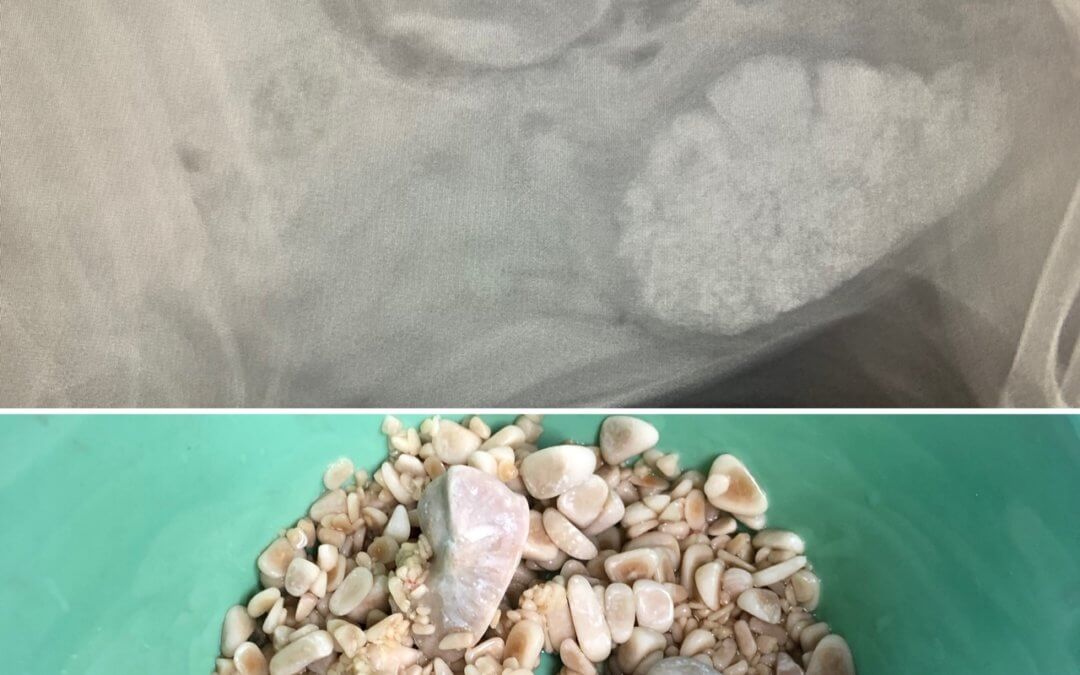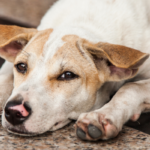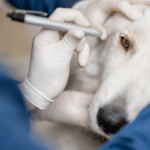Koukla is a sweet little 11–year–old female Moodle who presented to us for investigation of a bleeding mass on her lip. Her owner also commented at the time of consultation that she was having difficulties urinating and was urinating inappropriately at home. Koukla would squat to urinate frequently, passing only small amounts of urine. Koukla’s urine was tested and was found to contain a large number of bacteria. Antibiotics were started to treat this infection.
As part of Koukla’s diagnostic work up, x-rays were taken and Koukla was found to have a large number of stones evident in her bladder. Koukla underwent surgery to completely excise the tumour on her lip. This tumour was found to be a melanoma and she recovered very well from this surgery.
Koukla’s owner then decided to undertake a second procedure to surgically remove the bladder stones. This involved surgically approaching the bladder, incising through the bladder wall and scooping and flushing until all stones were collected. We retrieved many stones of varying shapes and sizes!
Bladder stones, or uroliths as they are also known, are physical aggregations of minerals and other substances found in the bladder and urinary tract. Uroliths rub on the walls of the bladder causing discomfort, pain and irritation whilst also contributing to infection. They can also become lodged in places along the urinary tract, causing a physical blockage preventing urination. Uroliths can be made up of a variety of different minerals. The minerals present can vary due to the breed of dog, pH of the urine, presence of infection or the presence of other medical conditions. Koukla’s uroliths were sent to a laboratory in the U.S.A. and confirmed to be struvite stones, which are largely composed of magnesium phosphate.
Patients who have uroliths generally show signs of frequent urination and urgency. Often, they will only pass small amounts of urine and in some cases where a blockage has occurred there may be no urine passed at all. Urinary blockage is an emergency situation and requires immediate veterinary attention.
Treatment for uroliths involves the surgical removal of the stones (depending on severity of the individual case), along with antibiotics and ongoing dietary management. Luckily, little Koukla has responded well to her treatment and is much more comfortable. She is a very happy girl who is now back to urinating normally. Koukla has now been given a new lease on life by her dedicated owners.






